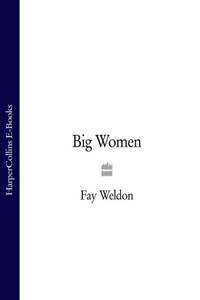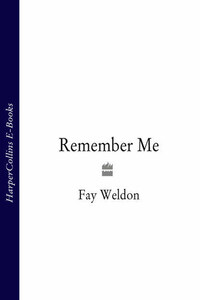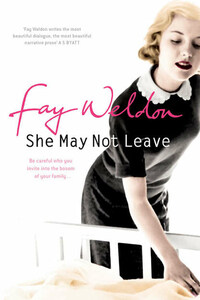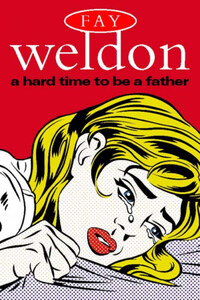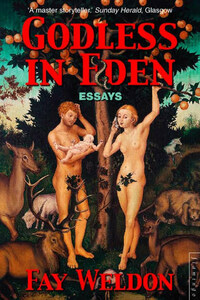Slap, slap, slurp: a hollow, juicy sound. Stephanie’s pasting up posters on the dark green wall of a Victorian urinal. The year’s 1971. This urinal still stands there at the bottom of Carnaby Street, alongside Liberty’s of London. See it now, as then. Stephanie is clearly not an expert at what’s called posting bills. Paste dribbles down all over the place: they go up crooked, they overlap. But up they go. The legend Bill Posters Will Be Prosecuted gets obscured, as another poster slips and slides.
‘Poor Bill Posters,’ says Layla.
Stephanie doesn’t get the joke. This is her life problem. Her life asset is her beauty. In 1971 she is twenty-five; she has perfect features, a lanky body, abundant blonde straight hair, and rather large hands and feet. Layla is twenty-six, shorter, plumper, funnier; she has curly dark hair. One side of Layla’s face does not line up with the other, so she is called sexy and attractive, but seldom beautiful. Layla does not regard this as a life problem. She has too much to think about.
The posters declare over and over, A Woman Needs a Man like a Fish Needs a Bicycle. People stare a moment and pass on. The message makes no sense. Obviously women need men. Everyone needs men. Masculinity is all. Armies need men, and government and business and technology and high finance. And teaching and medicine and adventuring and fashion. And all the serious arts. Offices, except for the typing pool, which is female, need men. It’s homes which need women, except for the lawn which is male. Women are for sex, motherhood and domesticity. Men are for status and action. Outside the home is high status, inside the home is low status. In popular myth men make decisions, women try on hats. The world is all id and precious little anima. Layla and Stephie, friends, mean to change all this. A Woman Needs a Man like a Fish Needs a Bicycle. Ho, ho, ho. Everyone knows women compete for male attention; isn’t this how the problem of female bitchery arises? Catty? Felines are nothing compared with women. Perhaps this puzzle poster is advertising something?
A couple of tourists, Brian and Nancy from New Zealand, emerge from the crowds in Carnaby Street. They have been rendered punch-drunk by colour, fabric, and the smell of patchouli. These are still flower-power and drug days. See feather boas, silk caftans, crushed velvet hats; lots of mauve, flares, miniskirts, platform heels; good-looking guys with lots of hair, girls with doll faces drifting behind them; wide eyes, fake lashes, white faces. Brian and Nancy both wear white Aertex shirts and tennis shoes for ease and comfort. Both are in culture shock. They flew in today from Wellington. (It took thirty-six hours.) They are accustomed to mountains, plains and sheep farms. Brian is gloriously handsome and golden. Nancy is pleasing enough to look at, but lacks eroticism: she’s tall, long-limbed, and manages to appear gawky rather than slender.
Brian is reading a newspaper headline. Oz Trial Verdict – the Bear’s Obscene. He has taken the paper from its stand but seems to have no intention of paying for it. The man who owns the kiosk lifts eyes to heaven. He is a relic of the old days. He has no nose. Leprosy ate it away. People avert their eyes but buy more papers.
‘Total filth,’ says Brian.
Nancy is staring at the poster, trying to make out its meaning. She senses that there is something mysterious and powerful here. Layla and Stephanie have finished with their bill-posting and now advance towards Brian and Nancy. Layla has a plank tucked under her arm. Nancy nudges Brian.
‘Is something the matter, Nancy?’ asks Brian, who has a man’s dislike of subtle hints.
‘Shouldn’t we get on to the Youth Hostel?’ asks Nancy.
‘They fill up early.’ She tries to draw him to one side but he resists.
‘Stop nagging,’ he says.
‘Sorry,’ she says. Women would say this to men automatically, far more frequently then than they do now.
‘Sex life of Rupert Bear,’ he says. ‘Getting school kids involved. Disgusting. And this Neville fellow is an antipodean. But this thing is worldwide, I reckon. A worldwide epidemic of permissiveness.’ He likes the sound of this. He repeats it.
‘Could we pass?’ asks Layla, politely, since Brian and his unbought newspaper bar their way. The noseless man smiles thinly under hideous nostrils.
‘Ladies say please,’ says Brian. At which Layla simply turns and swipes him to one side with the end of the plank, turns back, and she and Stephanie move on. Brian, knocked against the wall momentarily, recovers quickly.
‘Aggressive bitches,’ he says.
‘You were in their way, Brian,’ remarks Nancy, which makes Brian wonder exactly whose side she’s on.
‘They must be feminists,’ he observes.
‘How can you be sure?’ she asks.
‘They don’t even walk like proper women,’ he says.
